#russian composer
Text
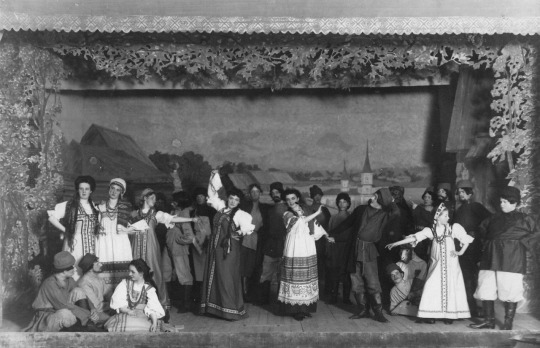
Scene from an unknown opera in the Nikolay Andreyevich Rimskiy-Korsakov Conservatory Hall,Saint Petersburg (1910s)
#Россия#Russia#vintage#photography#Санкт-Петербург#Saint Petersburg#Europe#русское искусство#russian art#art#Николай Римский-Корсаков#Nikolay Rimskiy-Korsakov#русский композитор#russian composer#composer#european#русская культура#russian culture#culture#history#russian#black and white#vintage photography#1910s#20th century
21 notes
·
View notes
Text
youtube
Vyacheslav Gryaznov plays Mikhail Glinka (1804-1857) : Valse-Fantasie (Trascr. V. Gryaznov).
29 notes
·
View notes
Text
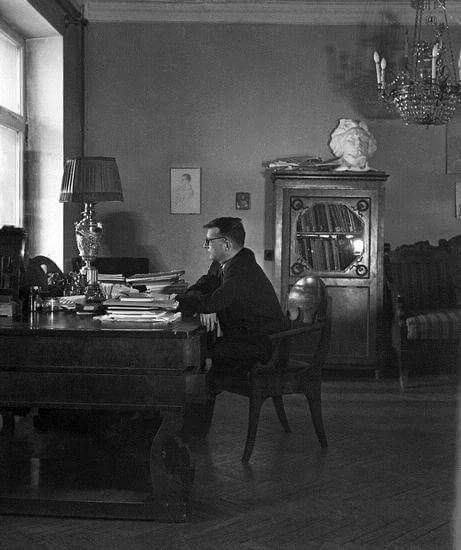

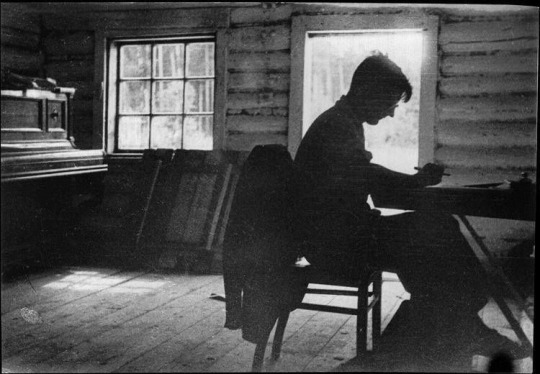
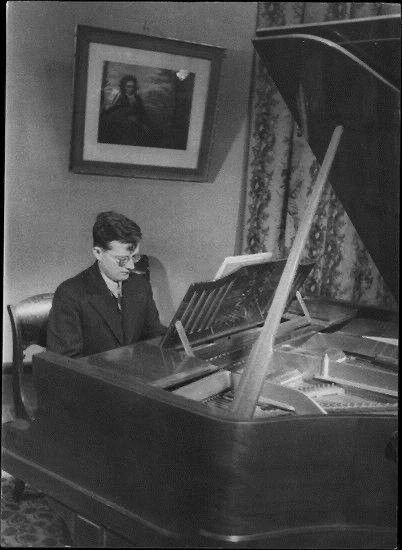
I love all the monochrome candid photos of Shostakovich, it really captures his essence well
#dmitri shostakovich#russian composer#classical music#classical music meme#classical music history#depressed russian composer whose early works are more happy than their later pieces
48 notes
·
View notes
Text
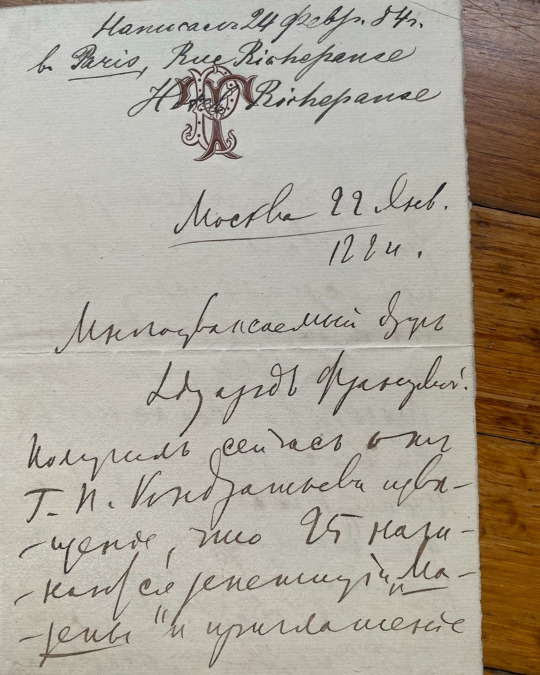
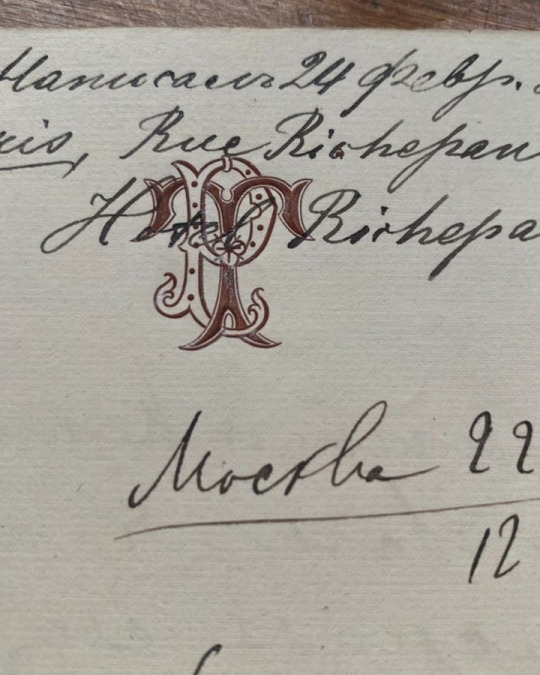
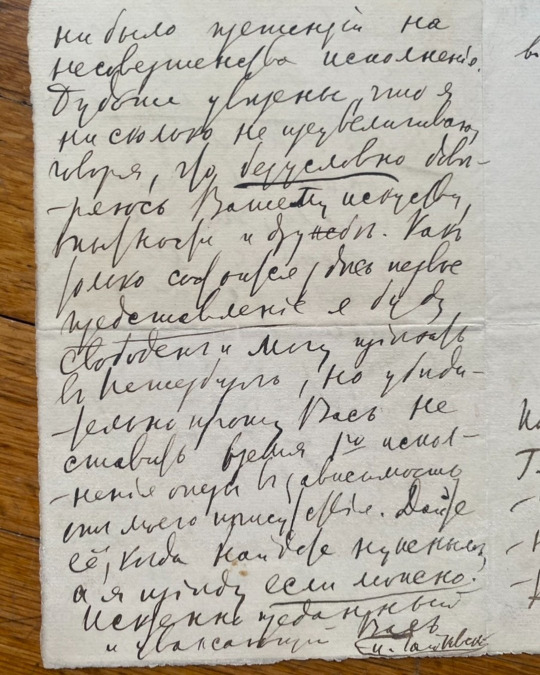


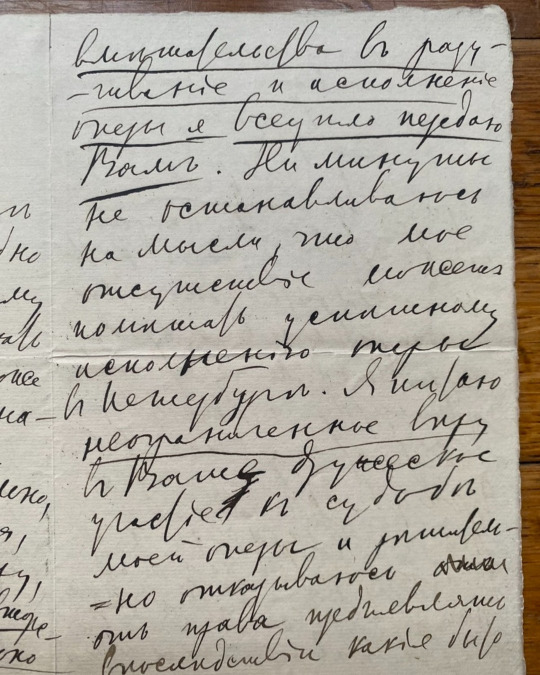
OTD in Music History: Composer Pyotr Tchaikovsky (1840 - 1893) sits down and writes a letter to his friend, the famous Russian conductor Eduard Napravnik (1839 - 1916), letting him know that Tchaikovsky will unfortunately not be able to attend the final rehearsals for the St. Petersburg production of his new opera "Mazeppa," because he must instead stay in Moscow to oversee the final rehearsals of the production of the same opera in that city.
Tchaikovsky composed "Mazeppa" between 1881 and 1883, and two related “world premieres” were arranged: Moscow (February 3, 1884) and St. Petersburg (February 6, 1884) -- the latter to take place under Napravnik´s baton. At both of these performances, the work was regrettably marred by uneven vocal and acting abilities within the two casts. The press and the public nevertheless responded warmly in Moscow, but "Mazeppa" received a harsh critical roasting in St. Petersburg. Tchaikovsky's brother, Modest, initially hid that fact from Tchaikovsky -- and when Tchaikovsky finally learned the truth some weeks later, he wrote the following to Modest: "You did well, because the truth might have killed me."
PICTURED: The original letter that Tchaikovsky wrote to Napravnik, referenced above, dated less than two weeks before the world premiere of "Mazeppa". This letter reads in part (translated):
"It is impossible for me to leave Moscow, where rehearsals are due to begin any moment now, too. My earnest request to you is to rehearse my opera without waiting for me . . . I am transferring all my rights of authorship concerning interference into studying for and performing the opera entirely with you . . . I nourish absolute trust in your friendly sympathy for the fate of my opera . . . be assured that I am not in the least exaggerating saying that I unconditionally trust your craftsmanship, experience, and friendship . . ."
Given the poor reviews, perhaps Tchaikovsky placed too much faith in his friend?
#Pyotr Tchaikovsky#Tchaikovsky#Mazeppa#Opera#bel canto#composer#classical composer#classical studies#aria#diva#primadonna#classical music#music history#letter#Mazepa#Pushkin#Poltava#poem#Aleksandr Pushkin#Russian composer#Romantic period#conductor#Eduard Napravnik#Napravnik#music
30 notes
·
View notes
Text
youtube
It's a great pleasure to share the delightful performance by Le Off (musiciens de l'Orchestre de Paris) of Stravinsky's Pastorale, a composition so different from his ballet and orchestral works.
#Stravinsky#Pastorale#Le Off (musiciens de l'Orchestre de Paris)#Russian Composer#The Firebird#Petrushk#The Rite of Spring#Youtube
9 notes
·
View notes
Text
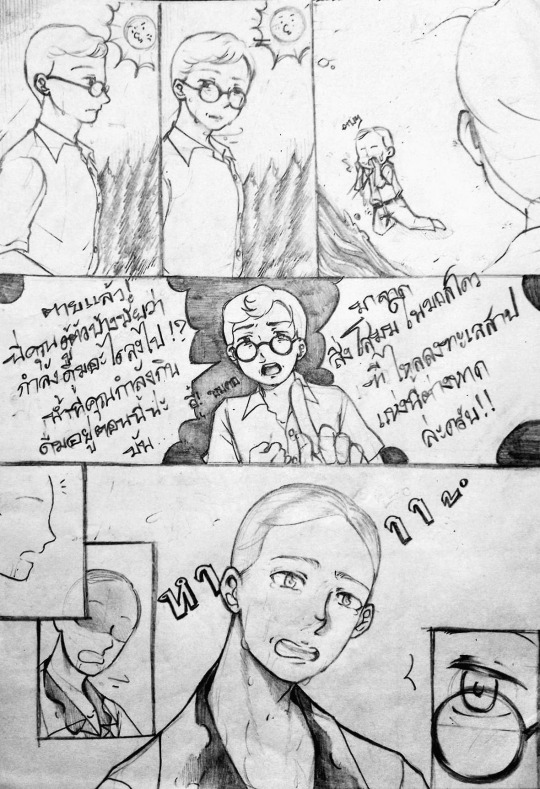

This joke was found from Twitter, then I try to adjust some dialogue. Here is the translation:
Sho: Oh no! Did you know where the water that you are drinking comes from!? It's from the dirty in Moscow's river, and then flows into this lake!
*Then he recognizes that the man whom he spoke with is Prokofiev. However the man still can't recognize him.*
Pro: Pardon me. Could you say it again? I can't hear you clearly.
Sho: Well, I just wanted to suggest you that... It's hot here, then why don't you go to swim into the lake!
Pro: I'm about to do it! Thanks!
Ps. I'm sorry... 🫣
11 notes
·
View notes
Text
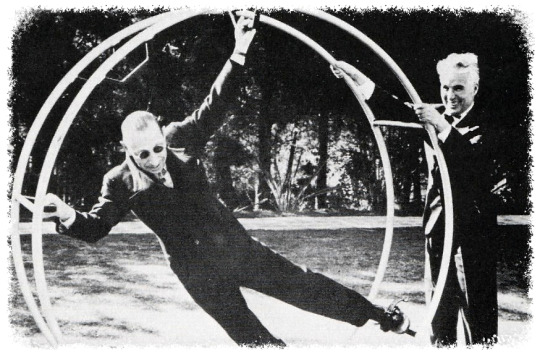
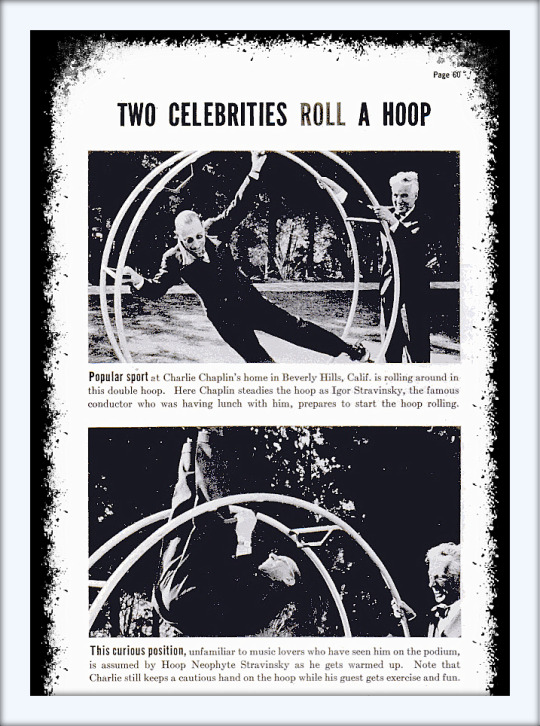
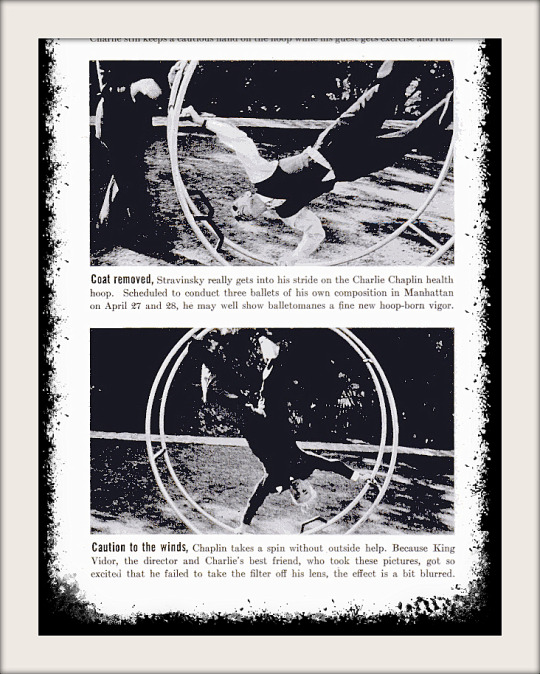
Charlie Chaplin with Russian composer Igor Fyodorovich Stravinsky having a bit of fun on the grounds of Charlie's Beverly Hills home - Life Magazine April 26th 1937.
16 notes
·
View notes
Text
Born in Petrograd, Ustvolskaya studied from 1937 to 1939 at the college attached to the Leningrad Conservatory (later renamed the Rimsky-Korsakov Conservatory). From 1947 till 1977 she taught composition at this college. In 1939 she entered Dmitri Shostakovich's composition class at the Conservatory as the only female student in his class. Her composition teacher said of her:
"I am convinced that the music of G. I. Ustvolskaya will achieve world fame, and be valued by all who hold truth to be the essential element of music."[1]
Shostakovich sent some of his own as yet unfinished works to Ustvolskaya, attaching great value to her comments. Some of these pieces contain quotations from his pupil's compositions; for example, he employed the second theme of the Finale of her clarinet trio throughout the Fifth String Quartet and in the Michelangelo Suite (no. 9).
Ustvolskaya was a pupil of Shostakovich from 1939 to 1941 and from 1947 to 1948, but her works from the 1950s onwards retain little influence of his style. Until 1961 none of her true works were performed other than patriotic pieces written for official consumption. The middle of the 1960s witnessed greater tolerance for modernist music, and interest in Ustvolskaya began to grow – the Leningrad Union of Composers organized in the 1970s evenings of her music, which received high praise from listeners and critics. Widespread recognition came after her music was performed in several concerts of the 1989 Holland Festival.
2 notes
·
View notes
Text

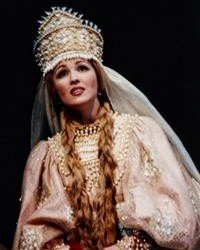
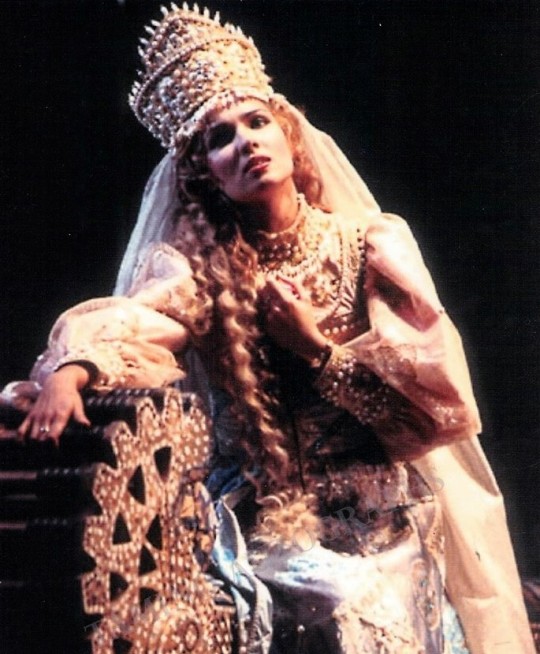
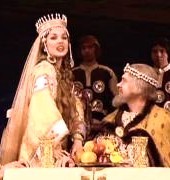




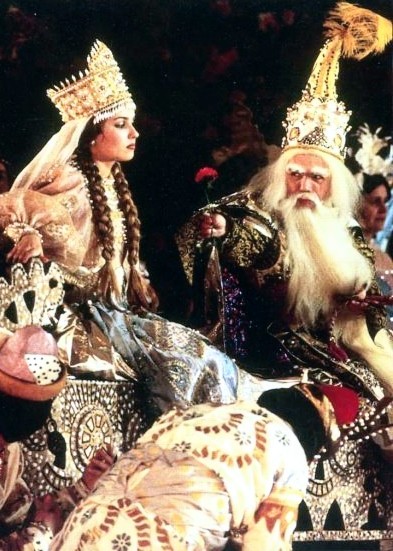

ANNA NETREBKO, Soprano
In GLINKA'S opera RUSSLAN & LYUDMILA 🌹🌹🌹
#anna netrebko#Soprano#Internacional opera Super Star#Glinka#russianmusic#russian artist#russian composer
5 notes
·
View notes
Video
youtube
Sergei Prokofiev: Visions Fugitive Nos 1, 3 & 4
0 notes
Text

Italian opera singer Nini Giani as Lubava in Rimskiy-Korsakov's opera "Sadko",Italy (XX century)
#Italia#Italy#vintage#photography#Nini Giani#русская опера#Russian opera#opera#Садко#Sadko#русский композитор#russian composer#composer#Николай Римский-Корсаков#Nikolay Rimskiy-Korsakov#Italian#русская культура#russian culture#culture#Europe#italian opera#history#beauty#black and white#european#vintage photography#20th century
18 notes
·
View notes
Text
youtube
Anton Arensky (1861-1906) - Vocal Quartet op57 with cello accompaniment
Russian State Synphonic Capella under Valeri Polyansky
Dmitry Miller - cello
6 notes
·
View notes
Text
Shostakovich-Sollertinsky letter translations (Russian to English)
So, I finally finished formatting my translations of the Shostakovich-Sollertinsky letters from a few years ago! These are letters from Shostakovich to his close friend, the polymath and scholar Ivan Ivanovich Sollertinsky, from the late 1920s to 1943. They offer valuable insight on Shostakovich's opinions on subjects such as music, his personal life, and current events of the day.
The letters have been published in Russian and have also been translated and published in German; an official English translation does not exist as of posting this. I'm not a fluent Russian speaker and much of this was done with the help of a dictionary and the internet, but I believe I compiled a decent enough translation. I kinda had to rush the formatting towards the end, but it should be readable enough. Anyway, if anyone is interested, here it is!
For any Russian speakers who want to review my translations or would like to read the original letters, here is the PDF of the book.
#shostakovich#dmitri shostakovich#classical music#composers#classical composers#music history#classical music history#soviet history#soviet music history#translation#russian to english translation#russian history
23 notes
·
View notes
Text
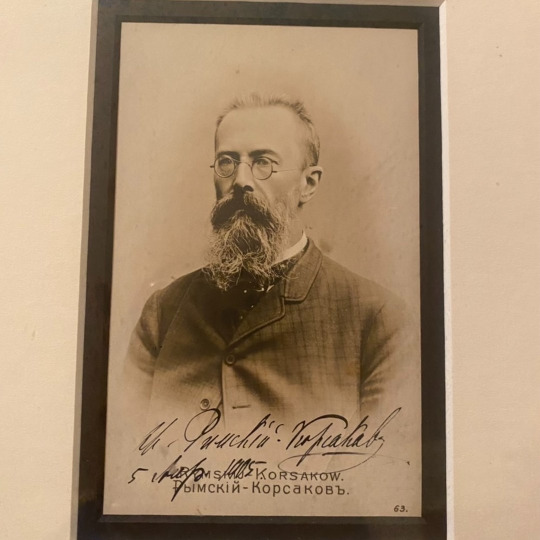
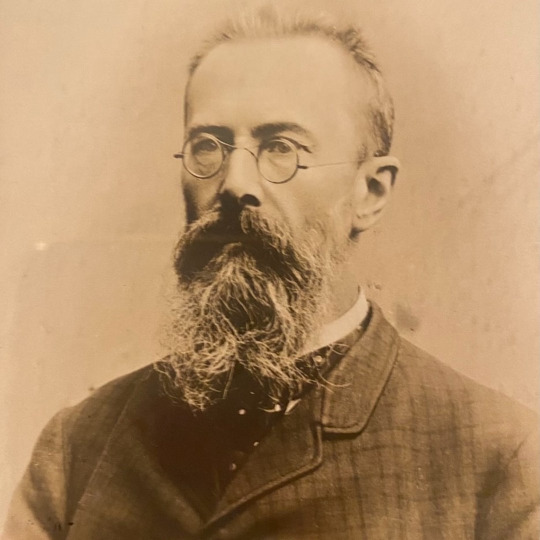

OTD in Music History: Composer, conductor, pedagogue, and master orchestrator Nicolai Rimsky-Korsakov (1844 - 1908) leads the world premiere of his newly-composed tone poem “Scheherazade” in 1888; it will prove to be his most enduring work.
Rimsky-Korsakov first came to prominence as a member of "The Five" or "The Mighty Handful," a historically important group of self-taught Russian nationalist composers who studied and worked (and sometimes even lived) together from ~1856 - 1870. Rimsky-Korsakov was a discipline of Mily Balakirev (1837 - 1910), the leader of "The Five" and a powerful (and highly despotic) figure within the Russian nationalist "classical" music movement. In 1871, however, Rimsky-Korsakov accepted a position as Professor of Practical Composition and Instrumentation (orchestration) at the Saint Petersburg Conservatory. (He still retained his position as a naval officer, and he actually taught his early classes in uniform as required by Russian law.)
Balakirev was strongly opposed to any form of academic training, but he encouraged Rimsky-Korsakov to accept the post in order to help convince students to defect and come to Balakirev. When it became clear that Rimsky-Korsakov had instead "gone over to the enemy", however, relations with Balakirev soured.
For his part, Rimsky-Korsakov soon realized how much formal training he lacked -- in his memoirs, he reported spending the first year struggling to remain "one lesson ahead" of his students. He eventually became a master teacher whose students included Igor Stravinsky (1882 - 1971).
PICTURED: A photo postcard showing Rimsky-Korsakov, which he signed in the turbulent year of 1905
-- when the "Revolution of 1905" rocked Russia, and Rimsky-Korsakov publicly supported a student walkout at the Conservatory. He was fired, sparking an even greater of wave of student and faculty protests until his reinstatement in December. (He retired just a few months later.)
#Nikolai Rimsky-Korsakov#Rimsky-Korsakov#Russian composer#composer#Saint Petersburg Conservatory#Sadko#opera#bel canto#classical music#classical singing#classical singer#The Snow Maiden#symphony#conductor#The Tale of Tsar Saltan#Historical drama#Folk opera#Fairy tales#legends#Folklore#pantheism#Римский-Корсаков#Николай Римский-Корсаков#teacher#orchestra
12 notes
·
View notes
Text



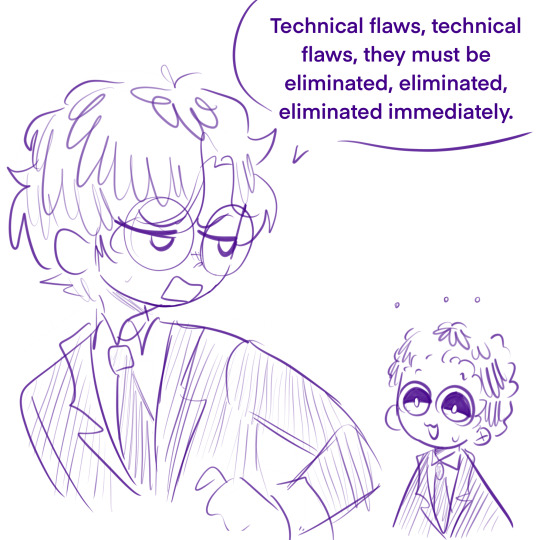
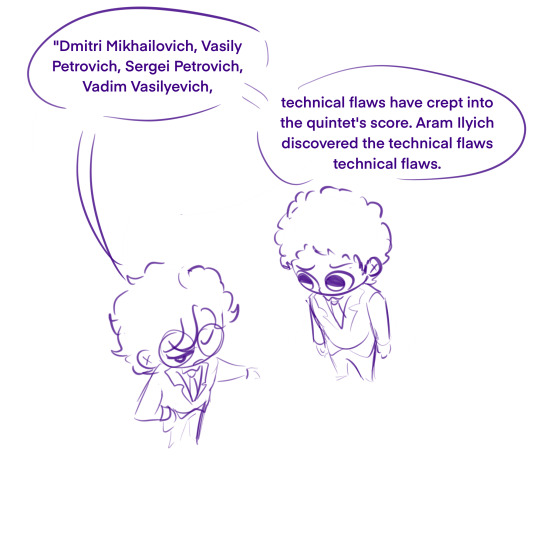
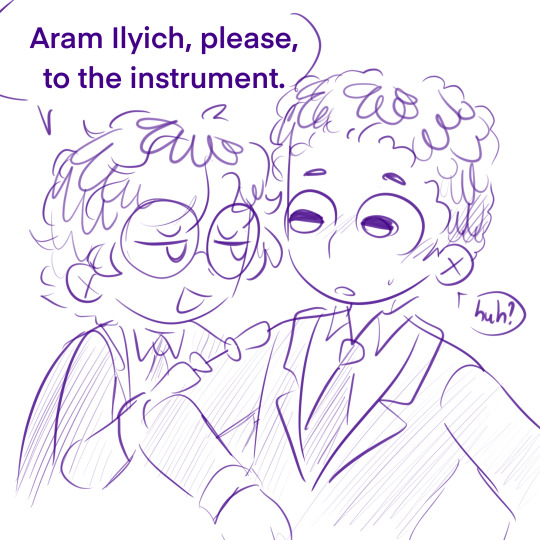


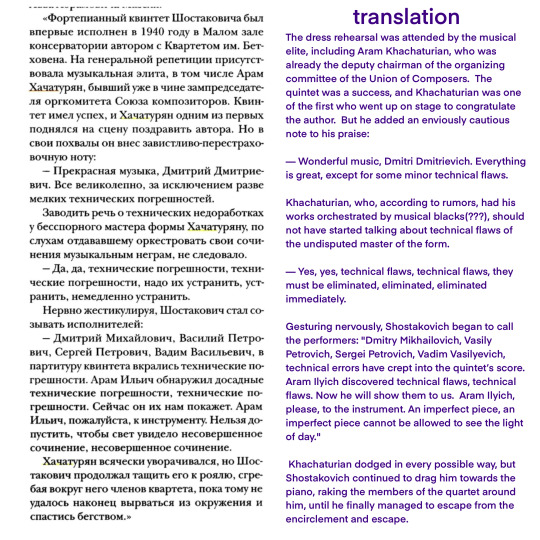
hai:3 ive been reading....... :3
making comics from silly moments so fun sighhh
#did you guys know im the biggest khachaturian fan btw#guys#guys..😭 he was born in my city hes literally me😭😭#anyways i downloaded random books in russian with shostys letters now im reading them#first time when im glad that i speak russian#this particular uh thing is from umm#великая душа😭 idk the english title or if its in english#enough babbling#my art#composers#classical composers#classical music#dmitri shostakovich#shostakovich#aram khachaturian#khachaturian
34 notes
·
View notes
Text
happy happier happiest 117th birthday to my namesake!
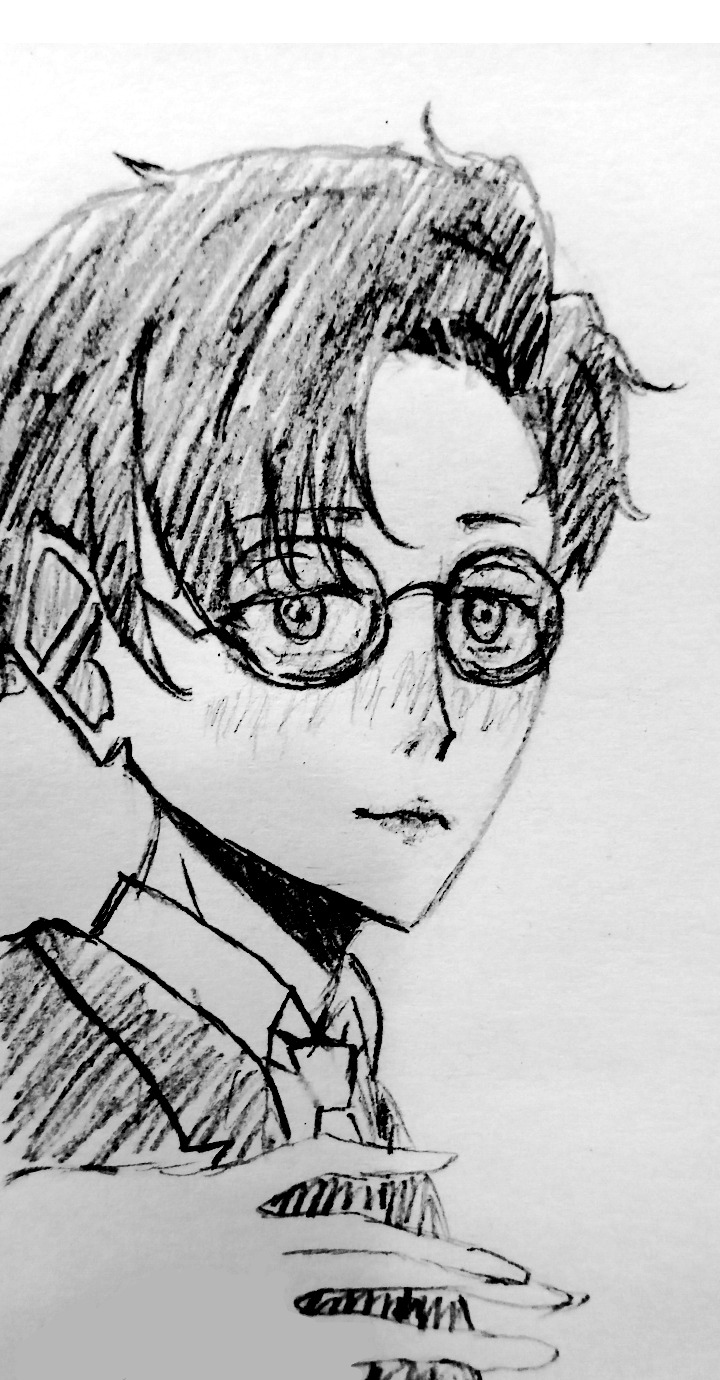
#shostakophile draws#shostakovich#dmitri shostakovich#classical music#russian composers#for an impromptu sketch it's not actually that bad tbh#the hands tho 💀 i ran out of time lmao
22 notes
·
View notes